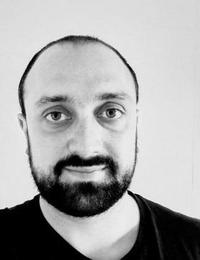Course syllabus
Welcome to Logical Theory, 2023, LOG111, 15 credits
This course is both part of the Master in Logic and available as a free standing course. The first part of the course runs in parallel with the course on Set theory and the the second part with the course on Modal logic.
Course content
The course starts with a comprehensive presentation of syntax, semantics and proof systems for propositional logic; and continues with classical first-order predicate logic.
Detailed proofs of the completeness theorems for both propositional and predicate logic are included. Basic results, such as the compactness theorem and Löwenheim-Skolem's theorem, together with more advanced results and concepts, for example, model completeness, form the model theoretical part of the course.
As examples of other logics, second-order and intuitionistic logic are presented together with completeness results. Basic proof theory is introduced and lead up to a proof of normalisation for natural deduction, both for classical and intuitionistic logic. Gödel's incompleteness theorems and basic recursion theory are also included.
Teachers
The course is taught by Graham Leigh, Anton Broberg and Giacomo Barlucchi.
Introduction
Monday 28 August 10.15 - 11:00 in room J303 of Humanisten
Finding the room: All lectures/classes will be held in the Humanisten building at the Renströmsgatan 6 on Lorensberg Campus. J3xx indicates that the room is in the new part of the building (around the open staircase) on floor 3 (same floor as the main entrance). The rest of the number identifies the room according to some hitherto undisclosed total order.
Registration
You will be able to register on the course one week before it starts. When you have registered for the course you will get access to more course information.
You can find information regarding registration here.
Schedule
A preliminary schedule for the course is available through TimeEdit.
Literature
The course uses the Logical Theory textbook. This is a remix and expansion of the Open Logic Textbook (OLT). The course textbook will be updated regularly with updates. If you find typos, errors or have suggestions for improvement please contact the course instructors.
You can access the very latest version of the text (and submit corrections) at GitHub.
Weekly lecture plans
Weekly lecture plans with short comments and reading instructions will be made available through the Modules page. Please see the module for part 1 and part 2 for the plans.
Examination
There will be two sit down written examinations, one for each part of the course. These are individual closed book exams and you are not allowed to bring any text, book, computer or other device to the exam. Please read the general information about exams.
The hand-in problems and assignments are not obligatory to pass the course, but we strongly recommend students to take the opportunity to get feedback on their solutions.
Example of exam questions can be found here.
Learning outcomes
On successful completion of the course the student will be able to:
Knowledge and understanding
- describe and demonstrate an understanding of basic model theory and proof theory including completeness theorems, for propositional logic, first-order logic, intuitionistic logic, and second-order logic.
- describe the relationship between intuitionistic and classical logic from both a model theoretic and proof theoretic perspective.
- describe the relationship between second-order logic, first-order logic, and propositional logic.
- describe and discuss Gödel's first and second incompleteness results as well as Gödel-Rosser's theorem.
Competence and skills
- formulate and present proofs of the most important results in the course including completeness, incompleteness and normalisation theorems, as well as of lemmas used in the proofs.
- apply methods and results of the course in independent problem-solving.
Judgement and approach
- critically discuss, analyse and evaluate the results in the course as well as their applications.
See the course syllabus for more information.
Course evaluations
The course will be evaluated through a course questionnaire. A short summary of the course evaluation from last year is available: Course report LOG111 2022 with evaluation.pdf
Special pedagogical support
If you have a disability and are in need of special pedagogical support please see the information available at the student portal.
Contact information
- Course coordinator Graham E Leigh, graham.leigh@gu.se answers questions about the course content, literature and schedule.
- Education administrator Peter Olsson, peter.olsson.2@gu.se answers questions about registration, examination administration, study interruptions, study breaks, certificates, etc.
- Program Coordinator Rasmus Blanck, rasmus.blanck@gu.se is responsible for programme issues and study guidance for students of the programme.
- Education Coordinator Peter Johnsen, peter.johnsen@gu.se
Plagiarism and academic integrity
Please take the time to go through the module Academic Integrity 1 to make sure that you understand what plagiarism is, why one should not plagiarise, and what happens if one does plagiarise.
Student information
Welcome to the department of Philosophy, Linguistics and Theory of Science
Course summary:
| Date | Details | Due |
|---|---|---|
